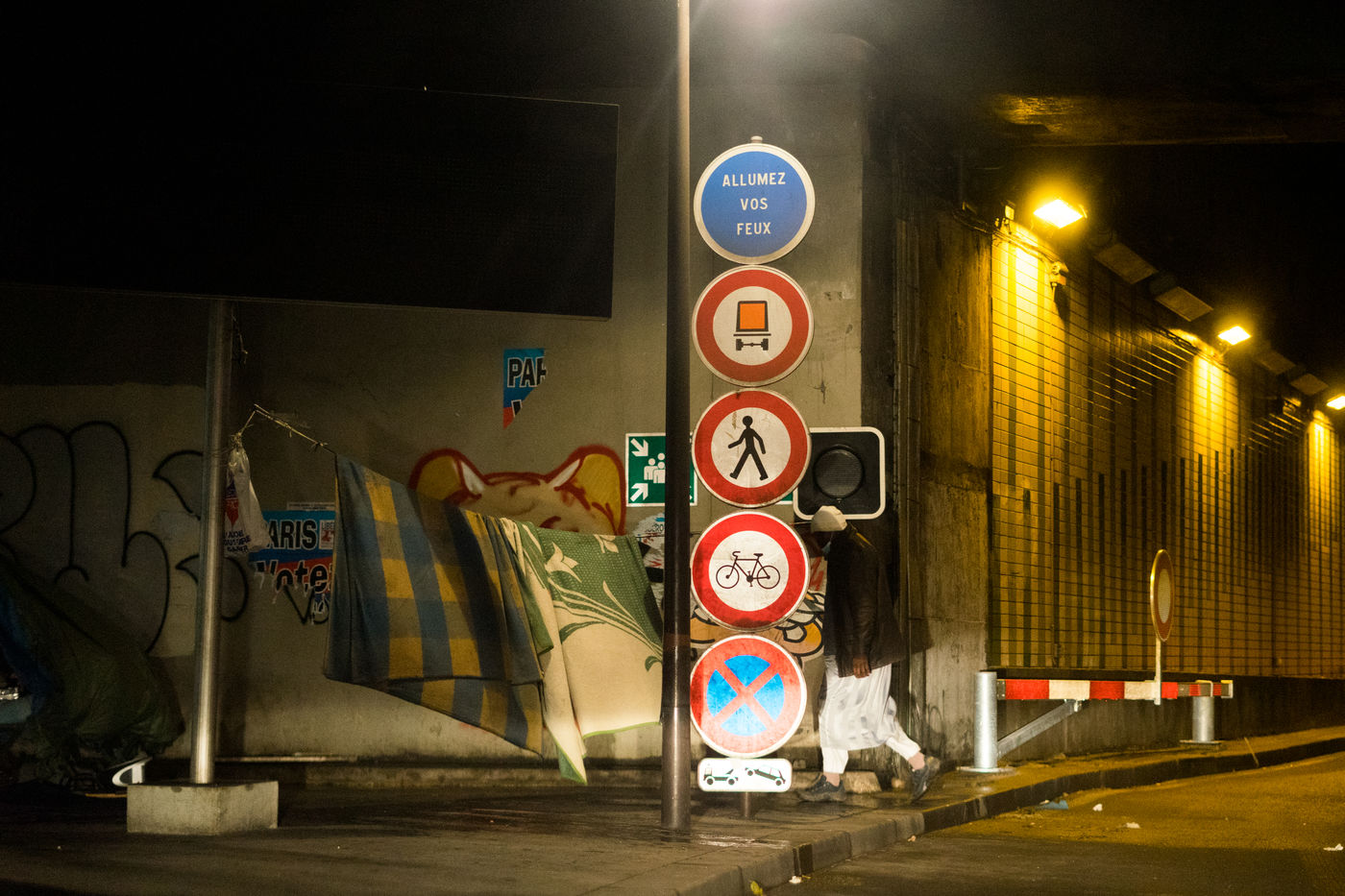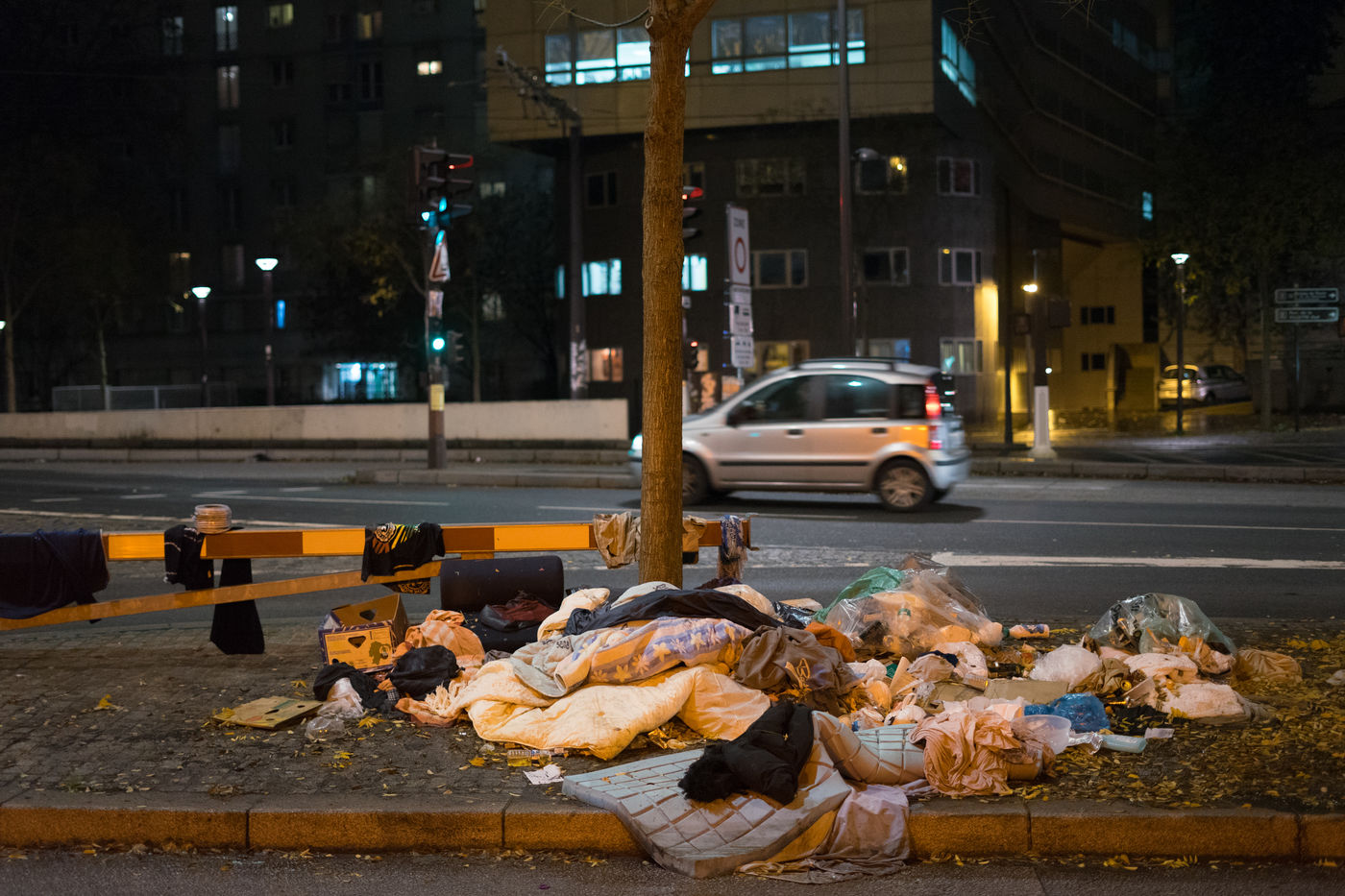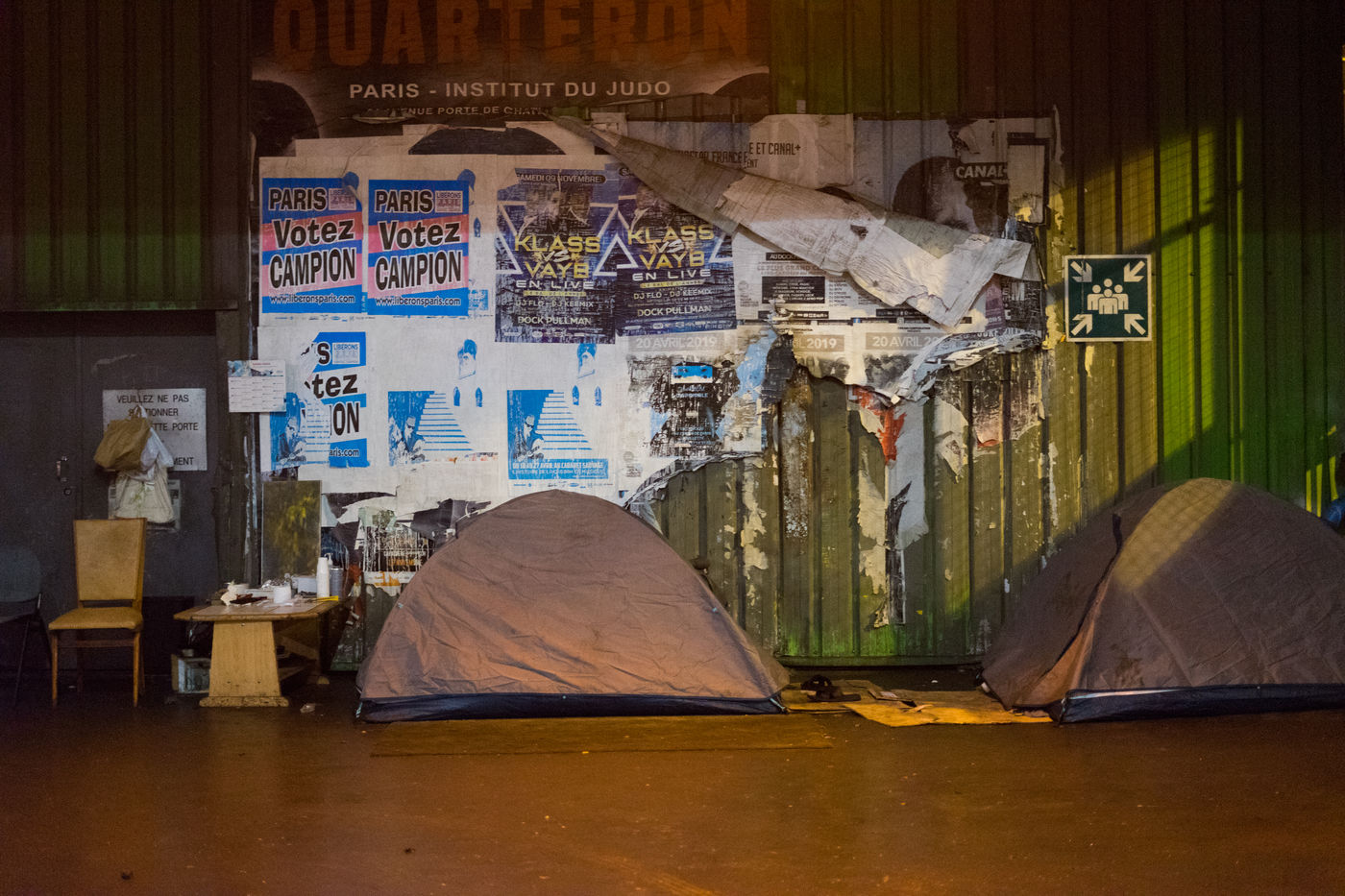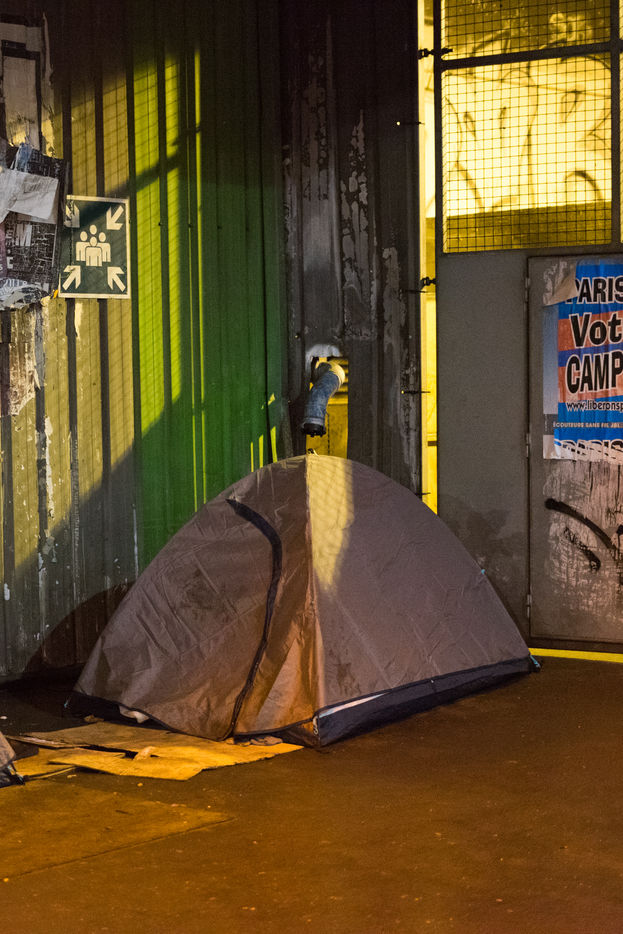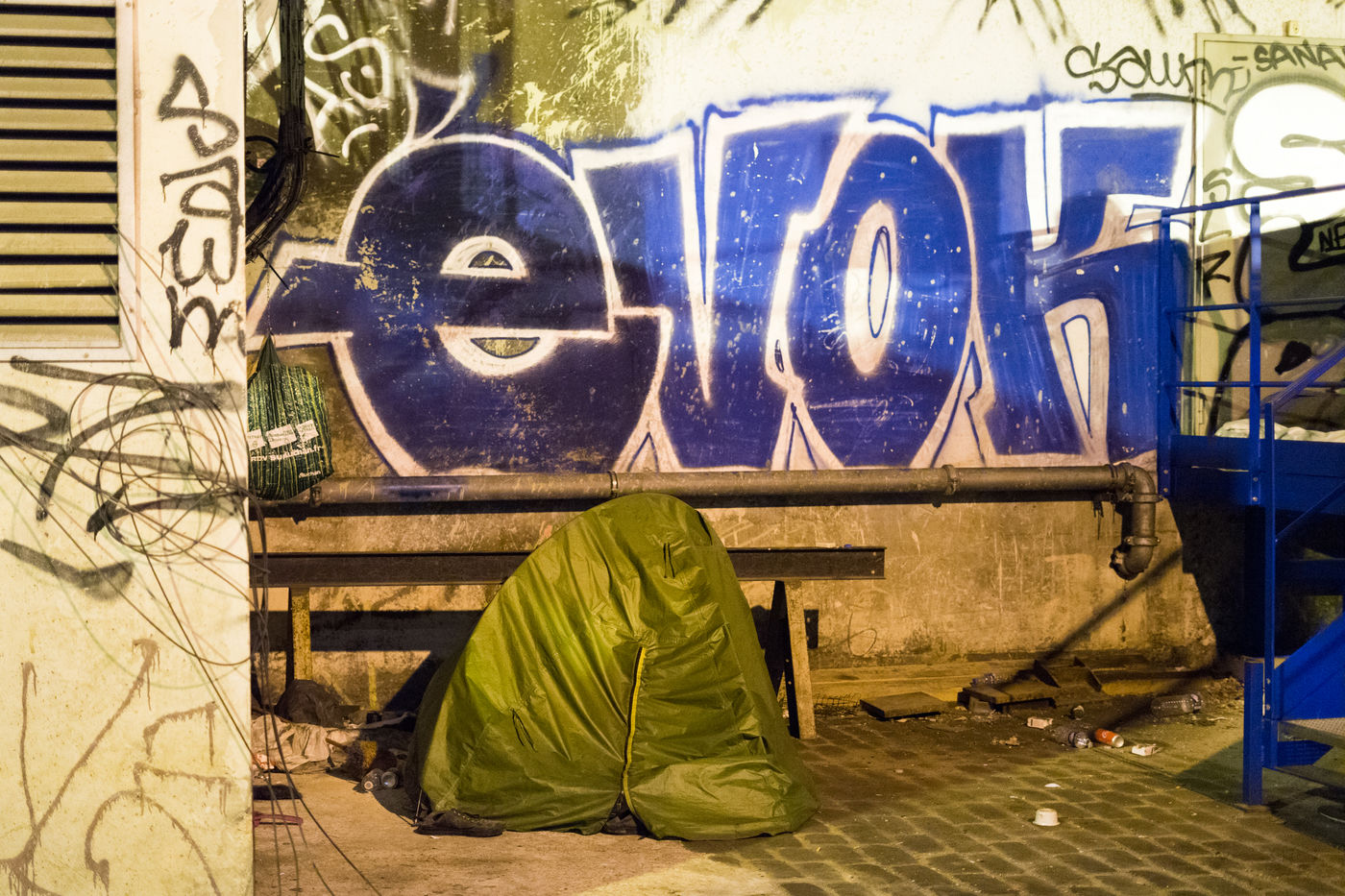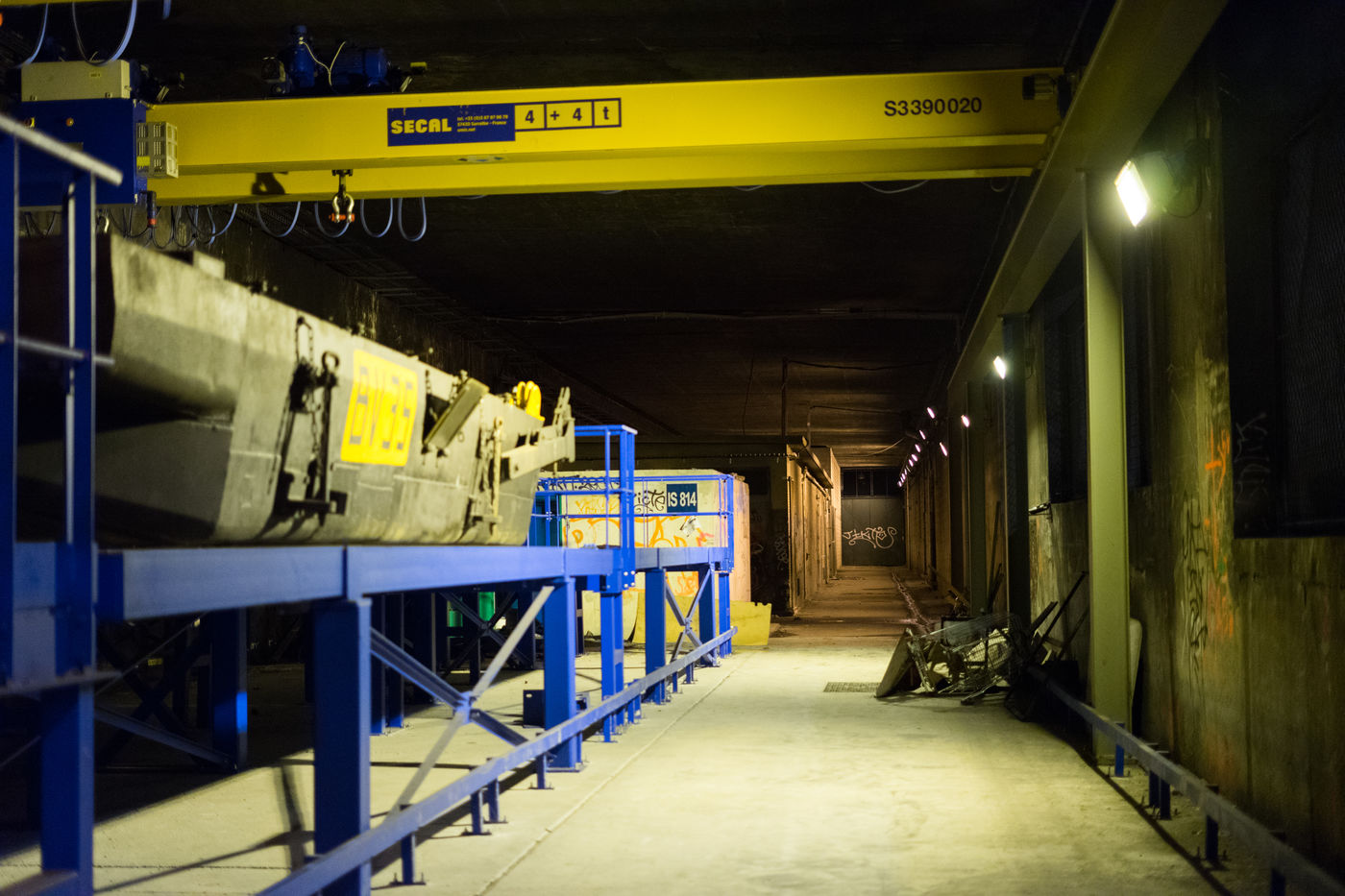LES OUBLIÉS DU PÉRIPHÉRIQUE
Suite au démantèlement du plus grand camp de migrants de Paris à Saint-Denis le 17 novembre dernier, le travail des associations devient de plus en plus compliqué.
« Meme si vous avez le sentiment que vous allez arpenter beaucoup de terrain pour trouver peu de monde, c'est normal », explique Philippe au début de la maraude. « Si on est obligés de faire ça, c est parce qu'on cherche des gens qui se cachent. Les gens sont poursuivis et harcelés par la police. » Il insiste également sur l'importance d'alerter et de témoigner sur la situation tout faisant attention à préserver l'anonymat des exilé.e.s.
18h48 - Porte de Pantin, sous le péripherique
Nous démarrons notre maraude à Pantin, au niveau du péripherique. Deux hommes sont présents, l un, dans une tente, nous accueille gentiment. L'autre semble installé depuis plus longtemps. Il a amassé beaucoup d'objets mais il n'a pas de tente. Il nous remercie chaleureusement du repas qu'on lui offre et commence à entamer la discussion. Il nous montre les blessures qu il s'est fait en cherchant de la ferraille l'autre jour. « Fils de Dieu », nous repond-t-il quand on lui demande son prénom. Puisque personne ne s intéresse à lui alors c'est ainsi qu il a choisi de se présenter aux autres. Apres quelques blagues, une tape sur l'épaule, on décide de partir.
20h48 - Proche de la porte de Bagnolet
On croise la route d'un autre groupe de migrants que l'on avait rencontré la derniere fois. Ils sont nombreux a se réchauffer ici au-dessus des échappements des égouts.
On fait la rencontre de Khalid. Il a 39 ans, il vient du Maroc. Il est monté a Paris il y a trois ans parce qu'il se disait qu'il gagnerait mieux sa vie ici. Il a travaillé dans les dégâts des eaux et a perdu son travail avec la crise. Les larmes aux yeux, il nous partage qu'il a juste envie de retourner au Maroc pour retrouver sa mère.
THE FORGOTTEN OF THE RING ROAD
Following the dismantling of the largest migrant camp in Paris in Saint-Denis on November 17, the work of the associations is becoming increasingly complicated.
"Even if you have the feeling that you are going to survey a lot of ground to find few people, it is normal," explains Michel at the beginning of the marauding. "If we have to do this, it's because we're looking for people who are hiding. People are being chased and harassed by the police. "He also insists on the importance of alerting and testifying on the situation while being careful to preserve the anonymity of migrants.
18:48 - Porte de Pantin, under the ring road
We start our marauding in Pantin, at the level of the ring road. Two men are present, one, in a tent, welcomes us kindly. The other one seems to have been there longer. He has collected a lot of objects but he does not have a tent. He thanks us warmly for the meal we offer him and starts to discuss. He shows us the wounds he made while looking for scrap metal the other day. "Son of God", he answers when we ask him his first name. Since no one is interested in him, this is how he chooses to introduce himself to others. After some jokes, a tap on the shoulder, we decide to leave.
8:48 pm - Close to the door of Bagnolet
We approach Porte de Bagnolet, where we find another group of migrants that we had met the last time. They are numerous to warm themselves here above the escapes of the sewers.
We meet Khalid. He is 39 years old, he comes from Morocco. He came to Paris three years ago because he thought he would make a better living here. He worked in water damage and lost his job with the crisis. With tears in his eyes, he shares that he just wants to go back to Morocco to find his mother.
Translated with www.DeepL.com/Translator (free version)
